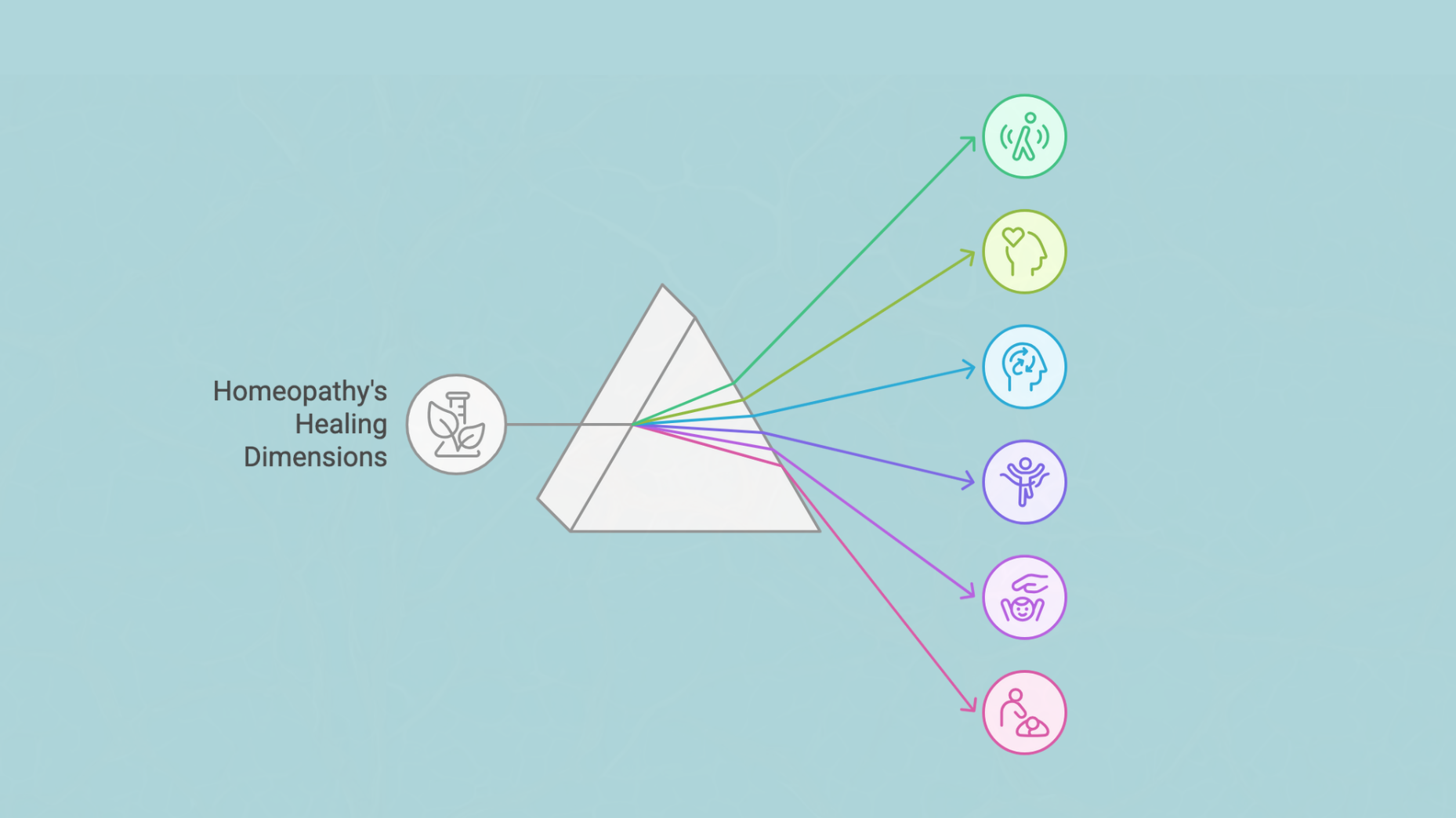In the world of health and healing, many people expect a straightforward solution: a specific medicine or supplement for a particular condition. Have a headache? Take this pill. Gut issues? Take that supplement. Feeling tired or stressed? Here’s a remedy to “calm your nerves” or “cleanse your liver.”
This one-size-fits-all approach is everywhere, in conventional medicine, in supplements, and even in popular wellness trends. But when it comes to homeopathy, the story is very different. Homeopathy is deeply, profoundly individualized.
Why Does Individualization Matter So Much in Homeopathy?
The short answer: because every person’s experience of illness is unique, even if the label is the same.
Take headaches as a simple example. Fifteen people might say “I have headaches,” but when you look closely, each one is different:
- One person’s headache is sharp and stabbing on the left side.
- Another has a dull, throbbing pain at the back of the head.
- For one, the pain feels like pressure, as if the head will burst.
- Another experiences an electric-like sensation shooting through the temples.
- The timing can differ too, some have headaches that always appear in the afternoon, others only in the morning or evening.
- The triggers vary as well, one person’s headache might come on after stress or emotional upset, another after dehydration or poor sleep, and someone else when exposed to noise or bright light.
All these details matter deeply in homeopathy because they reflect how each person’s unique mind-body system is expressing imbalance. The remedy must fit this individual pattern, the exact nature, location, timing, sensation, and triggers of the symptom.
Beyond the Physical Symptom: The Emotional and Mental Layers
But there is even more to this uniqueness. Most chronic health issues today, especially in the Western world, have complex root causes that are emotional or mental in nature. So, in homeopathy, the remedy doesn’t just match the physical symptom, it also addresses the emotional and mental context behind it.
Here are some examples to illustrate:
- Physical root causes might include dehydration, poor sleep, a pro-inflammatory diet, or exposure to toxins. These can cause symptoms like headaches, fatigue, or digestive upset.
- Emotional root causes might be feeling overwhelmed by stress, pushing down sadness or anger, or living with unresolved grief or anxiety. Imagine a person who suppresses frustration day after day, their nervous system tenses up, and the tension shows up as a persistent headache.
- Mental root causes include deep-seated beliefs or thought patterns, such as feeling “not good enough,” perfectionism, or constantly pushing beyond limits. This chronic mental strain can manifest physically as inflammation, tension, or exhaustion.
A Relatable Scenario: The Headache Example
Two people both suffer chronic headaches.
- Person A wakes up every day with a pounding headache in the temples. Physically, they don’t drink enough water and eat inflammatory foods. Emotionally, they are dealing with recent grief that they haven’t fully processed. Mentally, they’re caught in a cycle of self-criticism and overwhelm.
- Person B gets headaches late in the afternoon, a tight band around the head. They’re under constant work stress but avoid expressing their anger or frustration. Mentally, they feel they must “always be perfect” and never rest.
Both have headaches, but their underlying causes and the way the headache presents are very different. Homeopathy sees this difference as crucial and selects remedies accordingly.
How Does a Homeopath Read These Signs?
Homeopaths learn to “read” the body’s language, the unique symptoms that show how the vital force is expressing imbalance. This includes:
- The exact sensation of symptoms (burning, stabbing, dull, pulsating).
- The location and timing of symptoms.
- The person’s emotional state and how symptoms interact with mood.
- The mental patterns that accompany the illness.
- The patient’s overall constitution, including temperament and history.
Every detail is a clue, and only by piecing these together can the homeopath find the remedy that resonates fully with the individual’s whole being.
Why This Individualization Matters
- It honors the uniqueness of every person, their story, their body, their emotions, and their mind.
- It targets the root cause, not just the symptom.
- It avoids the pitfalls of “one size fits all” that often lead to incomplete healing or recurring symptoms.
- It supports lasting balance by working with the whole person, not just the isolated condition.
When we understand that symptoms are unique messages from the mind-body system, it becomes clear why homeopathy must be individualized. The “same disease” in name can be a very different story for each person, shaped by their physical state, emotions, and mental patterns.
By respecting this complexity, homeopathy offers a truly personalized path to healing, one that sees you as a whole, interconnected human being, not just a checklist of symptoms.



